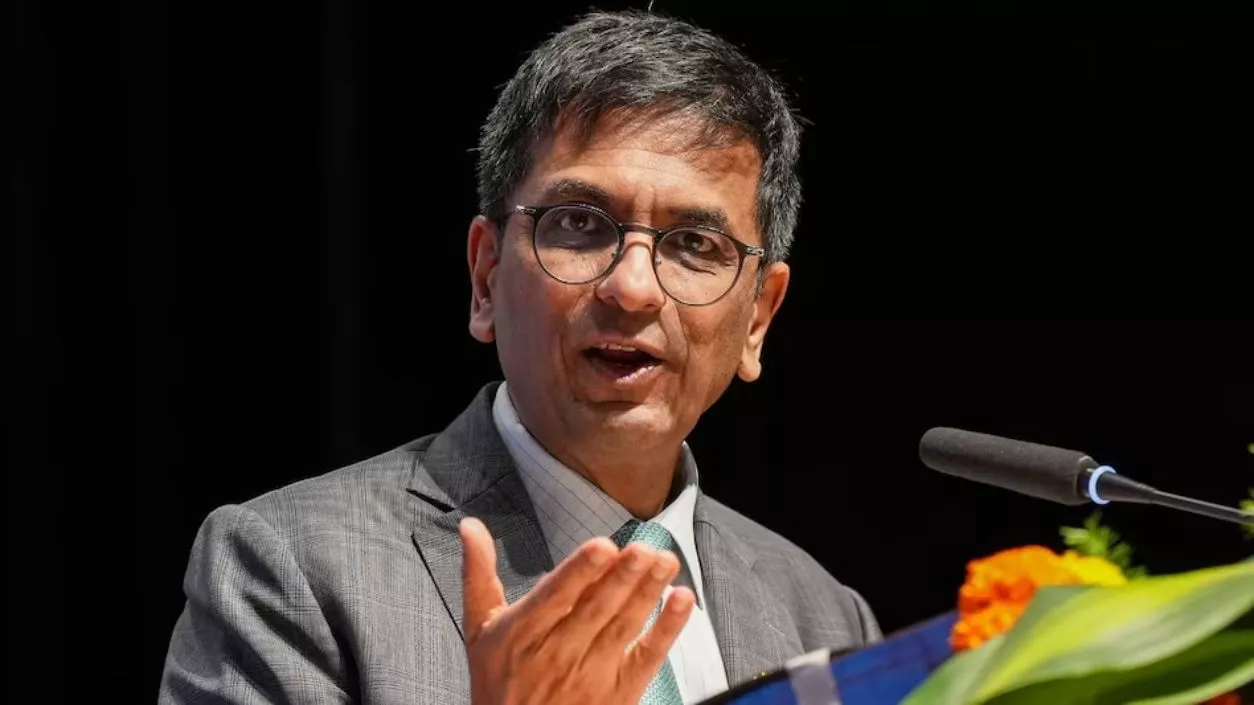.gif)
.gif)

Chief Justice of India (CJI) D.Y. Chandrachud recently addressed residents of his ancestral village, Kanhersar, in Khed taluka, Maharashtra, reflecting on the Ram Janmabhoomi-Babri Masjid dispute. In his speech, he emphasized the significance of faith in navigating complex legal issues, stating, “If you have faith, God will find a way.” His remarks resonated deeply with the audience as he recalled his personal prayers for resolution during the pivotal moments of the case.
During the address, CJI Chandrachud elaborated on the challenges he faced while adjudicating the Ram Janmabhoomi-Babri Masjid dispute, which was brought before him for three months. He noted that often, cases come to the judiciary for decisions, but reaching a consensus is not always achievable. The complexity of this case was underscored by the long-standing historical, religious, and emotional factors involved. He recounted how, at times, he felt the weight of these complexities and sought divine guidance for a resolution.
The Supreme Court’s landmark verdict on November 9, 2019, delivered by a five-judge bench headed by then Chief Justice Ranjan Gogoi, effectively resolved the contentious issue. This ruling paved the way for the construction of a Ram Temple at the disputed site in Ayodhya, a decision that marked the culmination of a century-long dispute that had sparked communal tensions and conflicts in the country. The bench also mandated the allocation of a five-acre plot in Ayodhya for the construction of a mosque, a move aimed at fostering communal harmony and reconciliation.
Justice Chandrachud was a pivotal member of the bench that rendered this historic ruling. The court’s judgment was meticulously documented in a 1,045-page verdict after an extensive 40 days of hearings and testimonies. This comprehensive ruling not only affirmed the site as the birthplace of Lord Ram—a belief that holds immense significance for many Hindus—but also recognized the need for a balanced approach that acknowledges the sentiments of both communities involved in the dispute.
In his address, CJI Chandrachud reflected on the profound historical context of the Ayodhya dispute. He highlighted how the case was intertwined with the cultural and religious identity of millions of Indians. His assertion that “I sat before God and told Him He needs to find a solution” illustrated the personal and spiritual dimension that informed his judicial responsibilities during this landmark case. This connection serves as a reminder of the human element that often underlies legal proceedings.
Following the Supreme Court's decision, CJI Chandrachud visited Ayodhya in July 2024, where he participated in prayers at the Ram Temple site, underscoring the temple's significance to the community. The consecration ceremony of the temple, attended by Prime Minister Narendra Modi on January 22, 2024, was a momentous occasion, symbolizing a new chapter in the site’s history and an affirmation of the court's ruling.